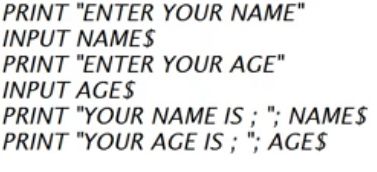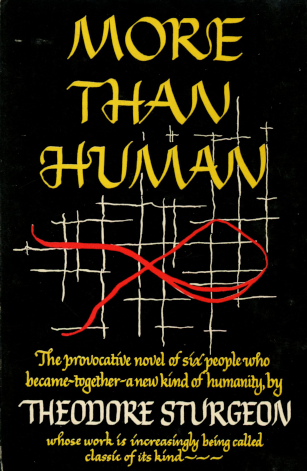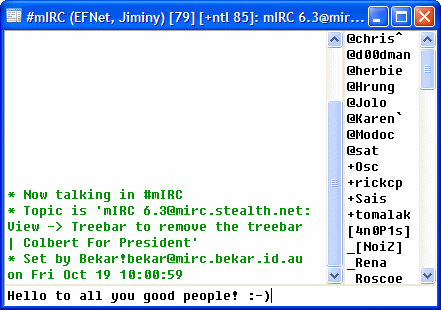Note: In 2021 I’ll publish one blog post per week. Here’s entry 12 of 52.

In 2004, I began asking others to call me by my first name, Douglas. Before that, I’d been called a variant of my middle name (which I won’t share here for mundane privacy purposes). I wanted a fresh start, because I was just entering my first semester at a university, and also, I was annoyed by the various paperwork hassles seemingly everywhere when your legal name and the name you go by differ. For example, class rosters not specifying how you’re actually called encourage teachers to address you by what appears on the roster. Since many teachers labor under the unfair requirement that they educate very large class sizes, and thus face far too many students to always memorize the preferences of each successfully, try as they might, you as a student can go through months and months of unpleasantly trying to correct a teacher about your name, something that’s supposed to intimately characterize you. The indignity of being called wrongly is even more profound for those whose name changes signal giant shifts in their personhood, such as those who switch names as part of gender or religious transitions. Me, I just thought a fresh start and an end to the paperwork hassles would be nice.

It’s strange how names characterize us, isn’t it? Consider the eponymous name of the protagonist in the 1998 movie The Truman Show: unlike those around him pretending to be his neighbors, Truman is a true man. But names, at least when initially given, actually characterize the parents/caregivers, their aspirations for the infant who’s receiving some particular name in the first place. A sense of this reality is frequently missing from fiction, when authors pick a name to symbolize or allude to something about a character, rather than about that character’s parents or environment (including economic class). In other fiction, such disparities between a character’s true self and their name are portrayed, especially if the story involves a name change. While authors spend lots of time thinking over the given names characters go by among their peers, I think surnames in fiction don’t receive much scrutiny, particularly in terms of migration. If an author is writing a story set in 2030 in Nebraska, and currently in 2021 nearly all people alive with surname X live only in France, should the author provide backstory for why someone with surname X is living in Nebraska just nine years into the future? Or are surnames freebies for authors and readers alike? As long as it sounds good and plausible enough, maybe no bulletproof backstory is required. You could reduce such realism problems to absurdity by requiring an author depicting a coffeepot in a story to know how it got there, tracing it all the way back to the specific particles emerging from the Big Bang. On the other hand, books too often expect readers to assume narrators are white and show WASP-y names as the norm, presenting anything else as exceptions in need of explanations.
Since 2004, there’s been a certain discomfort with my first name, for many of those using it and me alike. I’m regularly asked the same question when meeting people: “Do you prefer Doug or Douglas?” The question stumped me for a very long time. Whenever I looked within, I discovered I legitimately don’t have a preference. Either is cool with me! So I couldn’t advise the question-askers, who as far as I could make out, wanted to be caring and accommodating. Just about every time I replied that I have no preference, the question-asker became frustrated. They said I should have a preference. But I didn’t. Maybe I hurt their feelings, as though they were going out of their way in offering to remember my preference, and my not having one stung like a rebuke, in some transactional world they exist in. Only this past month have I finally figured out something more about the question. I’ve been doing core strengthening in physical therapy to help with one of my legs (two surgeries on it in my life so far), and the physical therapist is extremely knowledgeable and competent. I like him, and I’m really grateful to have his excellent help. He told me he has a thing for trying to remember the best names to call people by. We were both a bit flummoxed by my lack of a preference between Doug or Douglas. I thought it over. I think the fact I get along well with this superb physical therapist enabled me to see something more about the question and my lack of a preference.
Here’s the answer, what’s been the answer all along: Doug and Douglas are the same name — just at different diction levels. Doug is informal; Douglas is formal. Compare “What’s up, Doug?” with “Listen, Douglas, we need to have a talk.” They’re the same name in two different forms. I don’t want to micromanage which level of formality my interlocutor picks for any particular conversation. I trust the appropriate diction level can just emerge naturally, simply from both parties’ interactions and the environment at large. Because I realized all this just a few weeks ago, I haven’t had the opportunity to test it out in real life yet. But the next time someone asks me, Do you prefer Doug or Douglas?, I’m going to tell them one’s for informal, the other’s for formal, and that they can select between the two as they think proper. I wonder what will happen. As long as they don’t call me Doogie.

A common thread in the above — asking others to use my first name (revealingly, sometimes frenemies from the past still don’t, pointedly refusing to honor my request); trying to justify to readers a surname’s presence in a geographic location and time period; attempting to explain to strangers that the two forms of a single name are for different diction levels — is a sense of individuals having to legitimize their names, and perhaps themselves, to others. Names are usually social, bestowed upon us and by us as we pass life down through generations. In Ursula K. Le Guin’s 1974 novel The Dispossessed, each character on an anarchist moon has but one name, handed out by a central computer registry to keep things organized. In contrast to this socially-focused system, in Theodore Sturgeon’s 1953 novel More Than Human, there’s a gripping moment when the first character we encounter, a lonely outsider, finally names himself. Initially, “Men turned away from him, women would not look”; however, after roughly five years living and working with the Prodd farming family, he learns to speak, though “always he preferred not to.” Eventually the farmer Mr Prodd asks him for his name (get it? Prodd as in prodding him). Because he has come to trust Mr Prodd, he’s able to fulfill this request. He thinks that a name “is the single thing which is me and what I have done and been and learned.” Despite his growing connection with the Prodds, he picks the name Alone, which he can manage to pronounce merely as a single syllable, Lone. That seems very individualist, but he chooses a name only when someone else asks him for it, so it’s an event both personal and social. (The book later follows Lone gathering what Sturgeon calls a gestalt, kind of a chosen family, from other outlier outsiders.) Does a person living on a desert island like a castaway need a name at all? Might they forget their own name? Finally, look at the concept of true names in Le Guin’s Earthsea fiction. Characters and objects in that univese have two names, a common one that’s safely shareable, and a second, secret, true name that empowers them and gives others power over them if it’s discovered. In neither case, however, are the names chosen.

Online, as in certain types of radio communication, users choose handles, also known as pseudonyms or simply nyms. These lessen tendencies in conversation/debate toward the logical fallacies of personal attacks and arguments from authority, where interlocuters waste time saying “You only believe that because you are [insert identity attribute here]”, as in, because you’re tall/short/rich/poor/white/of color, etc. With nyms, individuals can choose personally meaningful ways to describe themselves, and the handles can become so meaningful that among those heavily involved in computers (or perhaps simply involved in online chatting), it’s common to go by the handles even in face-to-face conversation, rather than by legal names. Some users, in contrast, choose random characters (for example: ang) to identify themselves, not wanting to give their personal story away to strangers. And some change nyms frequently, rebooting their name over and over, trying to prevent others from assuming things based on what might have been past interactions with the person. When I play around with it, this aspect of computing (akin to writing under a psuedonym) can feel very liberating.

It seems names should be a touching aspect of life, and fun to ponder, but they’re commonly just another battleground. Picking a name can feel empowering (because how could an unchosen name really represent/express who you are?), while keeping a name bestowed by others can offer connection linking the past, present, and future together. Maybe, like successful accounts of trauma that provide healing, names need to be simultaneously personally meaningful, and effective and connecting in social contexts. Really thinking names through, as opposed to dissociation from life (“it’s all a blur”), as well as good relationships for experimenting with names, seem very helpful for individuals trying to determine what might be their own best path.


This blog post, The battleground of names, by Douglas Lucas, is licensed under a Creative Commons Attribution-NonCommercial-ShareAlike 4.0 International License (human-readable summary of license). The license is based on a work at this URL: https://douglaslucas.com/blog/2021/03/26/battleground-names/. You can view the full license (the legal code aka the legalese) here. For learning more about Creative Commons, I suggest this article and the Creative Commons Frequently Asked Questions. Seeking permissions beyond the scope of this license, or want to correspond with me about this post one on one? Please email me: dal@riseup.net.
 Twitter:
Twitter:
1 comment so far ↓
It’s interesting too how in some languages, speakers are given any number of resources to avoid mentioning other people’s names as much as possible. Like, you can refer to a person by a family relationship (brother, aunt, cousin, etc.) or by a professional title (the manager, the chief, the president, etc.).
And then if you’re talking to another person face-to-face, you get additional name-avoidance resources, like honorific/humility markers or a set of several 2nd person pronouns that reflect/establish different social relationships. And if you absolutely have to use a name, it’s also sometimes common to use a person’s family name, even in informal settings, because using the given name feels almost kind of taboo.
Some of these things people do in English too (“What’s up neighbor?” “The boss wants those reports on her desk ASAP.” “Mr. L! So nice to see you!” etc.), but these choices seem neither obligatory nor even expected.
Concerning the name variants, I get the same. People say, “So do you prefer to be called ‘Earl E.’ or just ‘Earl?'” And my response used to be that I didn’t really have a preference–just don’t call me “The Pearl” or “Worm Catcher” etc., and I also found that people were rarely satisfied with that response. They’d say, “Yeah, but what do *you* want *me* to call you?” seemingly without realizing that they were simply rephrasing their original question.
So when I thought abut it, the problem to me was always more about identity. I think we’ve got a strong cultural tendency toward one person, one identity. Like, it’s a big part of our legal system… probably even civilization in general, to be able to neatly tie each individual person to one and only one name. Discrepancies (however many John Smiths there are, etc.) are sorted out with SSNs, but few people have acquaintences with identical names in their own social circles, so no big.
Anyway, if you go by two names, like some people call you Earl and others Earl E., it almost feels like you’ve got two separate identities, which I think people are a bit uncomfortable with. They feel like the different variants of your name represent not differences in immediate social setting (formal or informal) but rather differences in a more general and permanent identity that you wish to project. So if I said I was open to both variants, maybe it felt to them like I was leading two separate lives, which they perhaps found unfair and thus unseemly.
And so I wound up using the “Which name do you prefer?” question as a bit of a sorting mechanism. If I like the person, I’ll say something inviting like, “Well, my friends call me Earl.” If I’m not so sure about them, I’ll say, “Oh, Earl E., and thank you for asking.” You know, try to turn that question around into something I can use too!
Leave a Comment